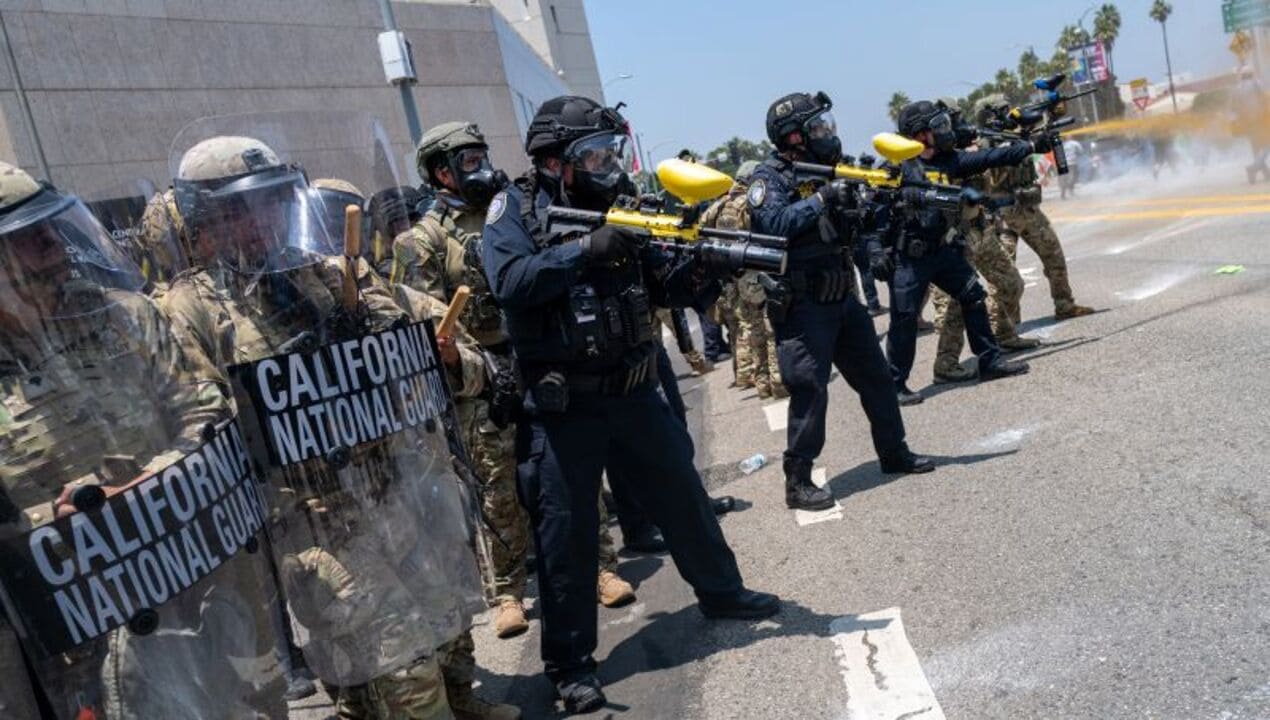
Independent Report – The Pentagon, through U.S. Defense Secretary Pete Hegseth, defended the deployment of National Guard troops and Marines to Los Angeles, saying the move was necessary to protect Immigration and Customs Enforcement (ICE) agents conducting operations that have drawn intense public backlash and sparked protests.
Hegseth told lawmakers that ICE agents must be able to carry out their duties without threats to their safety. “We believe ICE agents should be allowed to be safe in doing their operations, and we have deployed National Guard and the Marines to protect them in the execution of their duties,” he said. He further explained that the ability to enforce immigration law is a fundamental responsibility of the federal government and that safety should not be compromised due to public resistance.
The deployment, ordered by President Donald Trump, included the arrival of hundreds of Marines in Los Angeles overnight, with more expected to follow. In addition, 4,000 National Guard troops have been activated to help manage growing tensions. Despite resistance from California Governor Gavin Newsom and other local officials. The decision has sparked a debate over the appropriate use of military forces in civilian settings.
Democratic lawmakers expressed concern about the cost and implications of using active-duty troops for what they argue is essentially a law enforcement mission. Representative Betty McCollum, a Democrat from Minnesota and a member of the House Appropriations subcommittee responsible for Pentagon spending, criticized the decision. She stated that the deployment places military personnel in an uncomfortable and unfair position. “This is a deeply unfair position to put our Marines in. Their service should be honored. It should not be exploited,” she said during the hearing.
Also Read : Industry Pushback Against U.S. Foreign Investor Tax Concerns
McCollum also pointed out that the current protests in Los Angeles do not resemble the 1992 riots. Which led to the last invocation of the Insurrection Act. At that time, President George H.W. Bush deployed military forces only after the governor of California formally requested assistance to control widespread unrest following the acquittal of Los Angeles police officers in the beating of Rodney King. In contrast, President Trump has not invoked the Insurrection Act for the current deployments.
The U.S. military has clarified that the Marines and National Guard units deployed to Los Angeles are there to support federal operations. Not to engage in direct law enforcement. Their main task is to protect federal personnel and government property in areas where tensions have escalated. According to officials, the military presence is meant to be supportive rather than confrontational.
While domestic military deployments are not unprecedented, they are typically reserved for responses to natural disasters, major emergencies. Large-scale crises such as the COVID-19 pandemic. For instance, during the early stages of the pandemic, troops helped build temporary medical facilities across the country. In 2020, over 17,000 National Guard troops were deployed in 23 states in response to widespread protests against racial injustice.
However, the use of active-duty troops in response to civil unrest is considered highly unusual. The U.S. Marines, trained primarily for international conflict zones and crisis response missions overseas, are not commonly used in domestic operations. Their primary roles involve combat missions, embassy security, and emergency responses in regions such as the Middle East and Africa.
Some Marine units also receive training in non-lethal tactics, including riot control and crowd management. Nonetheless, lawmakers argue that the use of these highly trained troops in civil contexts could risk escalating tensions further and blur the lines between military and civilian responsibilities.
As debates continue in Congress, the administration maintains that the presence of military personnel is essential to secure federal operations in Los Angeles. The long-term impact of this deployment on civil-military relations and community trust, however, remains to be seen.
Also Read : Revolutionizing Access: Genie Introduces Smart Linear Actuator Gate System